The curtain rises, the lights shine, Zheng Siwei and Huang Yaqiong focus intently at the camera. Every movement and position, without excessive coordination, flows smoothly and harmoniously. They have accumulated extensive experience in similar photo shoots, so every time their eyes meet, it often results in a burst of laughter.
Inviting “YaSi” back to the cover after a year, we felt their current state of relaxation and enjoyment, a sign of their maturity.
At the moment of winning the gold at the Hangzhou Asian Games, Zheng Siwei jumped high, waving his arms in excitement, more enthusiastically than usual; standing beside him, Huang Yaqiong continuously waved to the audience, her big eyes filled with tears. From Jakarta to Hangzhou, five years have passed, transforming from nothing to an array of honors, and once again completing “YaSi’s” self-transformation with a championship. Despite countless gold medals and continuous honors over the five years, they still feel the sting of defeat. Their desire for victory is as strong as any newcomer.
Yaqiong, 29, and Siwei, 26, cannot reverse time, and the rules of competitive sports are inescapable, but they bravely face the numerous obstacles on their path. Perhaps, in their own words: “In terms of mentality, we need to shift from feeling we must win the championship to knowing we have the strength to win it, which can better motivate ourselves.” “Losing isn’t a bad thing, I feel that encountering problems now serves as a reminder for us.” Constant self-improvement through repetition is the best challenge for this highly compatible pair to explore their limits.
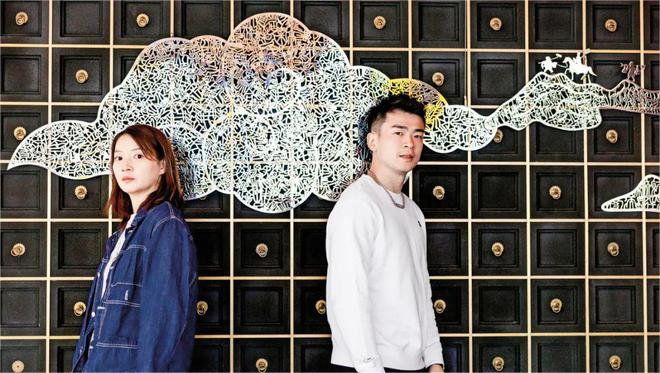
The back-to-back win at the Asian Games may have slightly soothed the regret of the World Championship final, and the year-end finals are “YaSi’s” biggest goal for the end of 2023. What new journey will winter in Hangzhou witness?
Defending the Title in Hangzhou, Entering the Sixth Year Together
Entering their sixth year, Zheng Siwei and Huang Yaqiong are no longer fixated on results, a tacit understanding between them. As one of the few championship-winning machines in today’s badminton world, their performance this year has had ups and downs but has not caused them to lose their composure. “YaSi,” with the ability to break through and rebuild confidence, is very clear: “We don’t need achievements to prove ourselves now; apart from the Olympic gold, we’ve won everything we could. For us, we won’t be too fixated on the results,” said Zheng Siwei.
They have experienced winning the Olympic silver by just 2 points in Tokyo, with the frustration and blow making them rediscover themselves through self-doubt and reflection. Now, they want to chase without regrets, regardless of the outcome.
Recalling their days competing in Hangzhou, they admitted the path to the Asian Games gold was particularly tough. As world number one and defending champions, they lost to the Korean pair Seo Seung-jae/Chae Yu-jung twice at the World Championships in August and the China Open in September. “It’s always easier to conquer than to defend. After losing a few matches, external doubts, the coaches’ and our own confidence would waver,” Zheng Siwei said. Compared to their dominant victory five years ago, their dominance has waned, but they are unafraid because the extraordinary five years they experienced together have brought them here, and every progress and growth comes from facing difficulties more courageously and openly.
In the previous Olympic cycle, Zheng Siwei trained with unimaginable injuries. He and Huang Yaqiong consecutively finished second at the Olympics and National Games, which led to their temporary separation last year. Now, recalling those days, Yaqiong is still vividly impressed. “These five years of growth, we’ve experienced all kinds of difficulties, and the ability to handle them will help us better challenge our opponents, which also reflects our mindset for this competition,” she said.
Standing on the court of the Hangzhou Asian Games, the “YaSi” pair understood: “Championships must be fought for, with all challenges prepared for, fighting to the last breath on the court, pressuring the opponents.” According to Zheng Siwei, “Before, we were always defending, but now we’ve changed positions; when we go all out, the opponents will feel the pressure.”
In the semifinals against Seo Seung-jae/Chae Yu-jung, “YaSi” ended their two-game losing streak. For Yaqiong, their relentless desire to win in this highly significant match put great pressure on the opponents. At critical moments, it was no longer just about tactics but a battle of mental strength. “After the semifinal, our confidence surged,” Huang Yaqiong admitted.
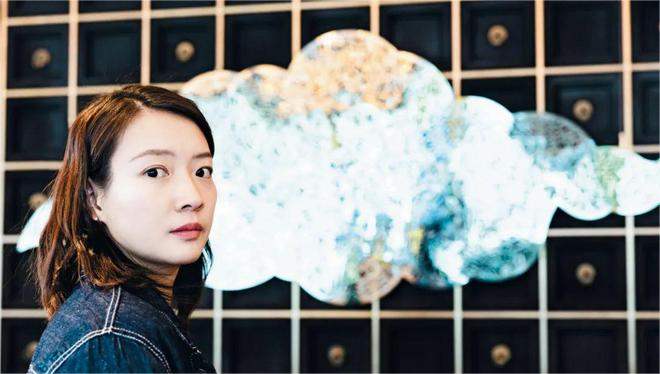
The Transformation of a Leading Female Player
The path to victory at the Hangzhou Asian Games was full of twists and turns, and when they secured the winning point, Huang Yaqiong felt a huge relief. From the start of the individual events, she couldn’t shake off the pain and shadow of losing in the women’s team final. “After winning the Asian Games, I was really moved to tears! Even though I didn’t play in the team event, watching everyone trying to score for the team and ending up overly cautious due to wanting it too much was very frustrating,” Yaqiong said. Her feelings burst forth after achieving their goal in mixed doubles. “On the day of the final, I watched ‘FanChen’ play, knowing their matches were tough, often lasting 80 to 100 minutes. Seeing them play so freely in the final made me both happy and heartbroken, and their eventual victory was truly moving.”
For Huang Yaqiong, this batch of players who emerged during the Tokyo cycle now face challenges from newcomers. Every major competition feels more cherished, “From the Sudirman Cup to the Asian Games, I felt like crying after finishing the last match each time.”
As Zheng Siwei commemorated his tenth year in the national team, Huang Yaqiong, as his senior, had already entered her eleventh year. In 2012, she and her contemporaries, Tang Yuanjin and Yu Xiaohan, moved into Room 604 of the Tiantan Apartment in Beijing. Now, her friends have found new directions in life, while she continues to pursue and persist on the court.
Indeed, Huang Yaqiong is surrounded by many “post-2000s” players, making her suddenly realize her role as a senior player. During training in Chengdu, living with Li Xi, born in 2004, she felt the age gap. “I felt an instant age difference, realizing that I couldn’t go back,” she said with a laugh.
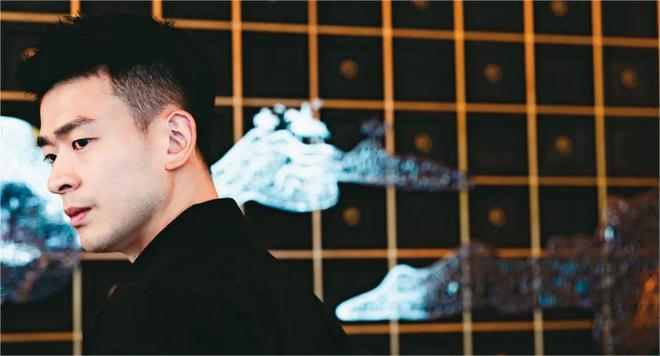
After returning from the French Open to Beijing, staying in Tiantan Apartment, back to where the dream started, Huang Yaqiong sometimes buys flowers to decorate her room. Although the room is different, she said that being in Beijing feels like returning to the home ground. Despite only training for over two weeks before leaving for competitions in Kumamoto and Shenzhen, Huang Yaqiong’s maturity is evident in how she manages her training.
After the Rio cycle, being pushed to the forefront, Huang Yaqiong pushed herself hard. From being the “fourth mixed doubles” to the first line, she gradually developed the aura of a leading female player, changing from a shy, introverted person. When she first paired with Siwei, they won their first three championships mainly based on individual abilities, with no coordination. Later, through continuous communication and adjustments by Siwei, Yaqiong gradually opened up.
However, her true transformation began when she separated from Siwei. “I really considered retiring, but I couldn’t give up something I loved so much.” So, when paired with Ou Xuanyi, Yaqiong became the proactive partner. When fate brought her back to pair with Siwei, they had more depth and accumulation.
Now, they focus more on effective training. Being fully visible, how to regain the initiative means perfecting the details. Thus, they often add extra training after regular sessions. “Corrections involve very detailed aspects, not immediately effective, requiring continuous effort to change ingrained habits,” Yaqiong said. This process isn’t comfortable, and she sometimes practices to the point of self-doubt, leading her to communicate with the coach, switching from technical to strength training, calming down before continuing. “When losing confidence in training, I calm down. I also communicate with Siwei, who understands and supports me.”
In this way, the once-obedient girl now has the aura of a leading female player on the court.
A Father’s Philosophy on the Court
18 minutes and 22 seconds – this is Zheng Siwei’s latest time for a single climb up Xiangshan. “I feel like I’m running very fast! I used to need only 17 minutes and 10 seconds.” He realized the era of dominating purely with speed was over.
Siwei acknowledges that time is fair. Similarly, different stages in playing badminton require different approaches. In this second Olympic cycle, he and Yaqiong need methods better suited to them.
Last year, after being separated from Yaqiong for a while and then regrouping, they won seven consecutive championships. Reflecting now, Zheng Siwei still finds it surprising. “Actually, last year, Yaqiong and I weren’t in good shape, with some injuries. In contrast, our form is good this year, but the matches are getting harder.”
Having experienced the process of constantly challenging as newcomers, Siwei has insights into different periods’ states and moods. From youth competitions, he and Chen Qingchen had risen to the top ranks by late 2015 and early 2016, becoming world
Discover More Content:
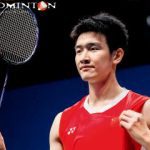 Li Shifeng: Turning the Tide, Standing Alone Like a Mountain
Li Shifeng: Turning the Tide, Standing Alone Like a Mountain
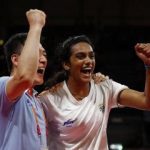 Sindhu Changes Coach Again, Aims for Gold at 2024 Paris Olympics
Sindhu Changes Coach Again, Aims for Gold at 2024 Paris Olympics
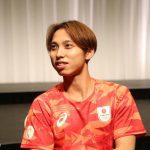 Kodai Naraoka Exits in Round of 16 in His First Olympics, Admits to Being Nervous Post-Match
Kodai Naraoka Exits in Round of 16 in His First Olympics, Admits to Being Nervous Post-Match
 Kevin Sanjaya Sukamuljo Successfully Proposes on His Birthday; Father-in-law is an Indonesian Tycoon
Kevin Sanjaya Sukamuljo Successfully Proposes on His Birthday; Father-in-law is an Indonesian Tycoon
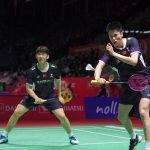 Celebrating his birthday with victory, Ou Xuanyi moves
Celebrating his birthday with victory, Ou Xuanyi moves
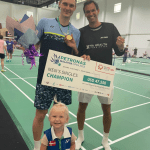 Axelsen Changes Coach Ahead of Tokyo World Championships
Axelsen Changes Coach Ahead of Tokyo World Championships






